Summary of the Report on the activity of the Human Rights Ombudsman for Saint Petersburg and on the human rights situation in Saint Petersburg in 2013
The Constitution of the Russian Federation was adopted 20 years ago.
Our Constitution states that Russia is a democratic state governed by the rule of law, that Man, his rights and freedoms are the supreme value, that protection of human rights and freedoms shall be the obligation of the State.
Our aim is to build such Russia – a country where human life and dignity in a daily life are recognized as the supreme value by both the State and its citizens.
Human Rights Ombudsman for
Saint Petersburg
Alexander SHISHLOV
1. Introduction
The annual report of the Human Rights Ombudsman for Saint Petersburg (hereinafter “the Ombudsman”) has been prepared according to the Law of Saint Petersburg of 17 December 1997 "On the Human Rights Ombudsman for Saint Petersburg". This report was presented to the Legislative Assembly of Saint Petersburg on 26 March 2014.
The report outlines current issues of human rights and freedoms in Saint Petersburg, includes information about the work of the Ombudsman and his Office aimed at redressing human rights violations, assistance in bringing legislation in line with human rights standards, improvement of law enforcement and administrative procedures.
The report is based on the information received from the following sources:
-
individual and collective complaints brought before the Ombudsman;
-
consultations with citizens at face-to-face meetings with the Ombudsman and staff members of his Office;
-
results of field inspections and visits, including those conducted in collaboration with supervisory and monitoring authorities;
-
official information from state and local authorities;
-
submissions of non-governmental organizations (hereinafter also “NGOs”);
-
mass media publications;
- Internet publications.
2. Overview of complaints brought before the Ombudsman
In 2013 the Ombudsman received 1696 written complaints from citizens and organizations. 868 persons addressed the Office of the Ombudsman at face-to-face meetings, and 41 persons had special appointments with the Ombudsman concerning the most important issues. The public assistants of the Ombudsman received 82 citizens. 632 persons contacted through hotlines held on essential issues for Saint Petersburg residents.
Out of 1696 complaints 11 were received from foreign nationals, 141 - from persons from other regions of the Russian Federation. On average, there were 3.4 complaints per 10 000 residents of Saint Petersburg.
If we assess the human rights situation in 2013 on the basis of complaints brought before the Ombudsman, it should be noted that some tendencies of 2012 persist. The majority of complaints received by the Ombudsman are still related to social and economic rights. Among them at the first place are those in relation with housing (23%). The share of complaints about the work of law enforcement agencies remains important (18%). The number of complaints concerning the work of judiciary takes the third place (9%). However, the number of complaints related to conscripts' rights has decreased (from 10% in 2012 to 5% in 2013). The least number of complaints is related to electoral system (2), the work of lawyers (3), the rights of children (5), lawmaking and legal system (6).
3. Right to housing
Housing is one of the most critical issues in Saint Petersburg. In 2013 residents of 6 064 communal (shared) apartments were offered their own flats, and this number is higher than that of 2012. However, on 1 January 2014 there were still 93 913 communal apartments in the city with 286 633 families living there. These numbers show that repeated statements about near elimination of communal accommodation in Saint Petersburg are premature.
One of the serious housing concerns which cannot be solved for many years is providing housing to individuals from vulnerable groups, including large families, that are entitled to improvement of their living conditions, and persons who are entitled to be granted accommodation on a priority basis under Article 57 of the Housing Code of the Russian Federation (for example, those suffering from severe forms of chronic diseases which do not allow sharing accommodation).
Protection of housing rights of victims of fraud is also still important.
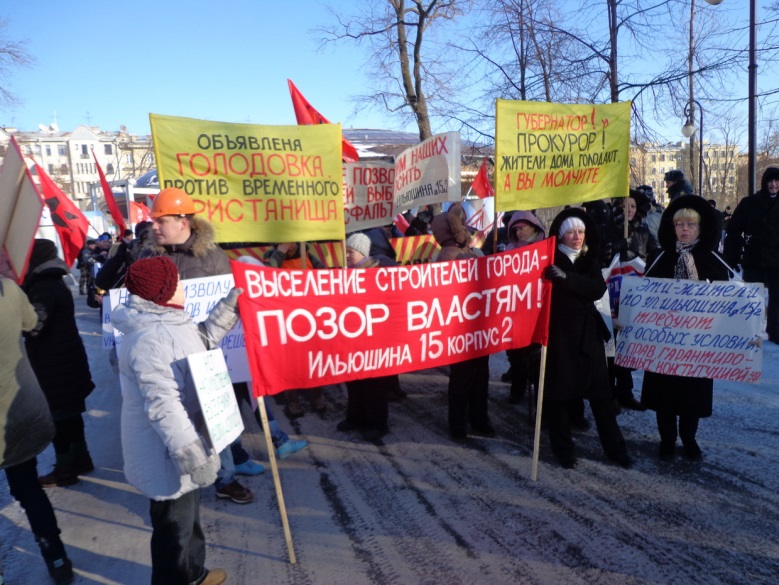
For example, in 2013 the Ombudsman assisted in protection of the rights of residents of a building situated at Ilyushina street, 15, block 2 who had been judicially evicted from their apartments by the owner of the building. The ground on which those persons lost their only dwelling was privatization of the building in 1991-1995 carried out without taking into account the residents' views and interests. In that situation the Ombudsman acted as a mediator between the residents and Saint Petersburg authorities. This work resulted in evicted people being offered separate apartments in new apartment blocks of a specialized housing stock. In 2013 out of 35 families 23 agreed to move in new flats, and the Ombudsman continues to work with remaining 12 families.
A comprehensive solution for the issues of victims of housing fraud requires legislative amendments. The amendments proposed by the Governor of Saint Petersburg to the Law "On procedure and terms for selling accommodation of the state housing stock of Saint Petersburg" adopted in 2014 will contribute to a solution of the situation. Nevertheless, these amendments require further improvement.
In 2013 the Ombudsman actively continued his work aimed at protection of the rights of owners of housing and helping them to better handle management of apartment blocks. The Ombudsman published a special report "How to protect the rights of owners of housing".
The material condition of Saint Petersburg housing stock is one of the major preoccupations. In mid-September 2013 the Committee for Housing Policy of Saint Petersburg stated on its web-site that 99% of the city housing was ready for heating season, in accordance with regulations in force.
However, during a hotline held by the Office of the Ombudsman on 24 September 2013 nearly 150 complaints about unreadiness of housing for winter were received from 148 addresses of 17 districts of Saint Petersburg. That number was five times higher than the official number.
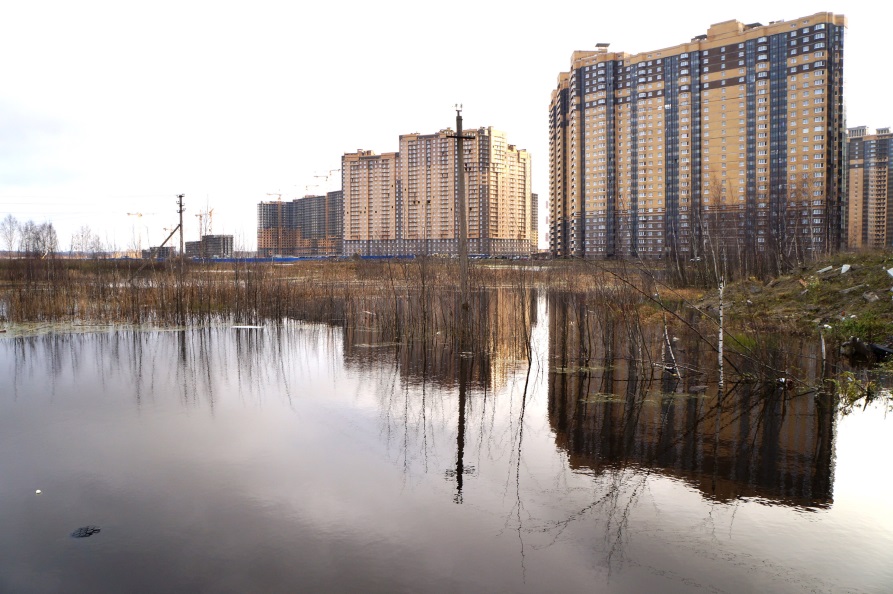
The Ombudsman transmitted the data collected during the hotline to the Vice Governor of Saint Petersburg who was in charge of issues of housing and communal services. The city authorities took prompt action in order to eliminate violations in the majority of the buildings from the list of the Ombudsman; this was subsequently confirmed by the residents of those apartment blocks.
4. Rights of conscripts and servicemen
In 2012 complaints concerning violations of the rights of conscripts and servicemen took the third place by number. Compared to 2012, the number of such complaints decreased twice. To a large extent this was due to an active involvement of the Ombudsman and his representatives in the work of army conscription commissions. The Ombudsman's assistance in the building of meaningful partnership between military authorities and NGOs protecting the rights of conscripts and servicemen also contributed to the improvement of the situation.
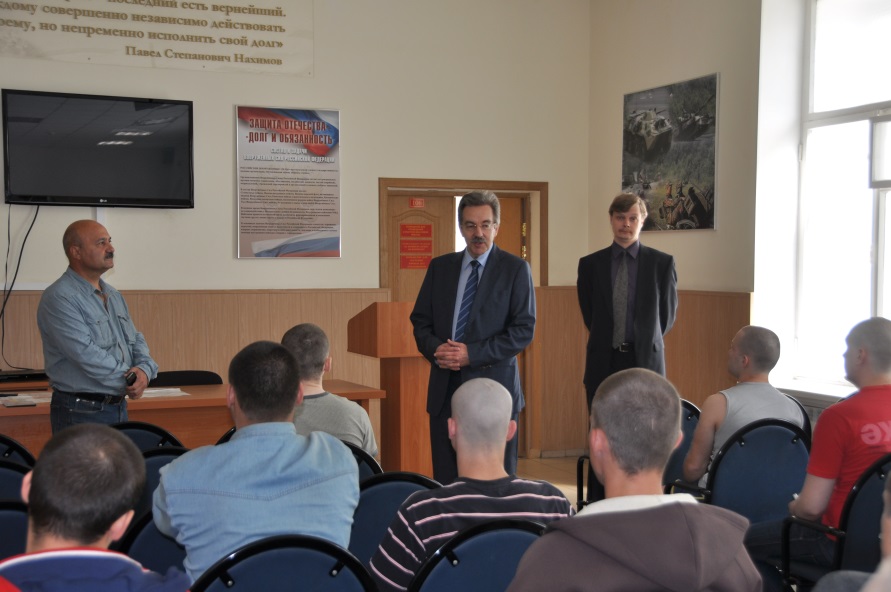
However, inappropriate notification of conscripts, questions related to their medical examination, deadlines for examination of applications from conscientious objectors for an alternative civil service remain matters of concern.
5. Right to social security and medical assistance
The total number of complaints concerning health care and social security received by the Ombudsman in 2013 remained almost the same as in 2012 (127 complaints). However, the number of complaints about the quality of medical services significantly increased.
6. Ecological rights
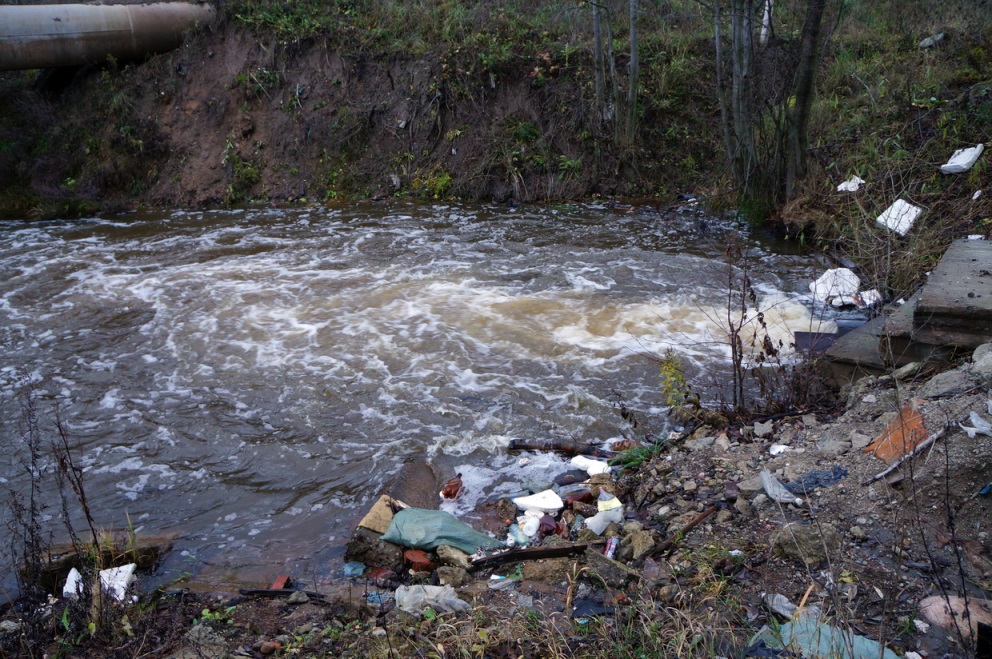
In 2013 the number of confirmed violations of environmental legislation increased by 20%. The representatives of the Ombudsman jointly with the members of the Committee for Use of Natural Resources and of the Environmental Prosecutor's Office visited various districts where, according to residents, there were unauthorized dumps of construction and household wastes, draining of raw waste water into water bodies and so on.
7. Right to a fair trial
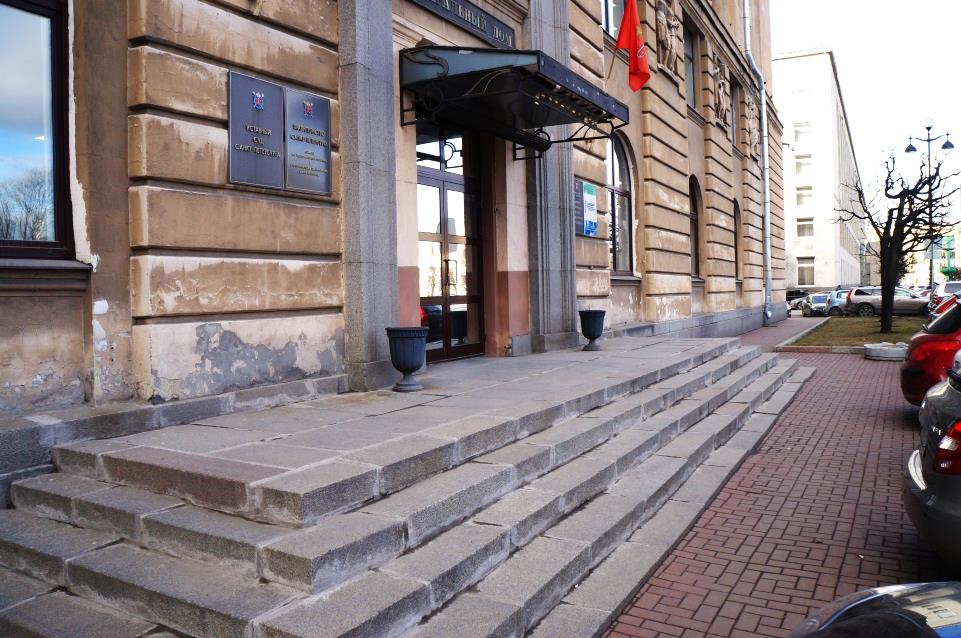
In 2013 the Ombudsman received over 100 complaints related to disagreement of citizens with judicial decisions in civil and criminal cases. The Ombudsman faces a number of objective challenges in monitoring respect of the right to a fair trial. The legislation in force does not entitle regional ombudsmen to bring proceedings before a court on behalf of a person or organization in relation to a violation of their rights. Therefore, the Ombudsman's function is limited to monitoring such important elements of the right to a fair trial as access to court, the right to public hearings, adequate legal assistance and other aspects.
8. Conditions of detention
In 2013 the Ombudsman received nearly 100 complaints concerning conditions of detention in remand prisons (SIZO), correctional colonies of the Directorate of the Federal Penitentiary Service of Russia in Saint Petersburg and the Leningrad Region and in temporary detention facilities (IVS) of law enforcement bodies.
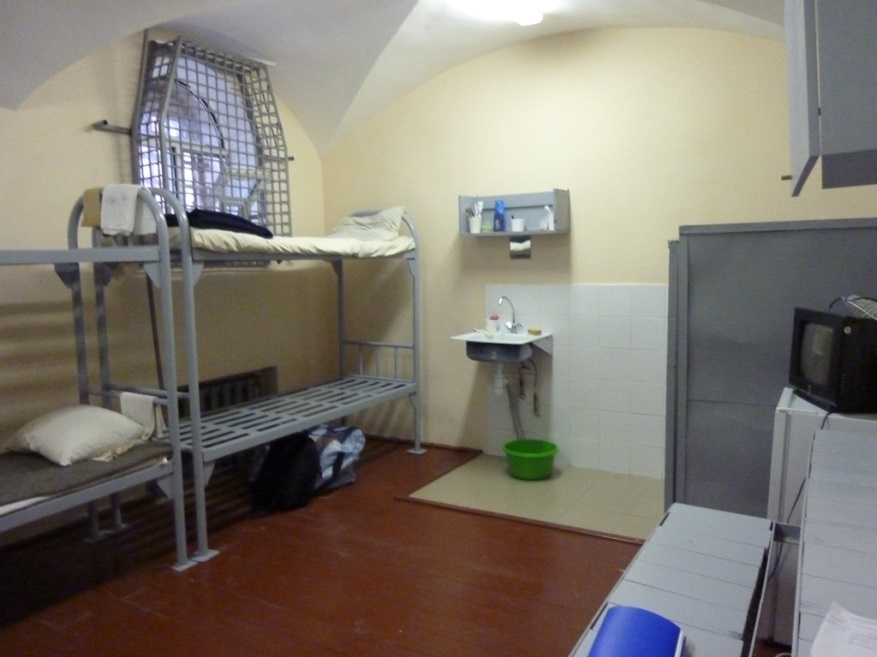
The Ombudsman and representatives of his Office regularly visit places of detention in the framework of the partnership agreements with federal authorities or according to federal law. The Ombudsman visits places of detention both on a periodic and ad hoc basis. These inspections are carried out with participation of members of the Public Monitoring Committee of Saint Petersburg. The Directorate of the Federal Penitentiary Service of Russia in Saint Petersburg and the Leningrad Region and the Main Directorate of the Ministry of Internal Affairs of Russia in Saint Petersburg and the Leningrad Region promptly respond to identified violations.
9. Prohibition of discrimination, protection of rights of vulnerable groups
Regardless of the number of complaints, the special area of the Ombudsman’s work is protection of the rights of victims of discrimination, people in hardship, persons with disabilities and other vulnerable groups.
One of the most significant obstacles to the free exercise of the rights and freedoms of persons with disabilities in Saint Petersburg is the lack of accessibility of social infrastructure and public transport.
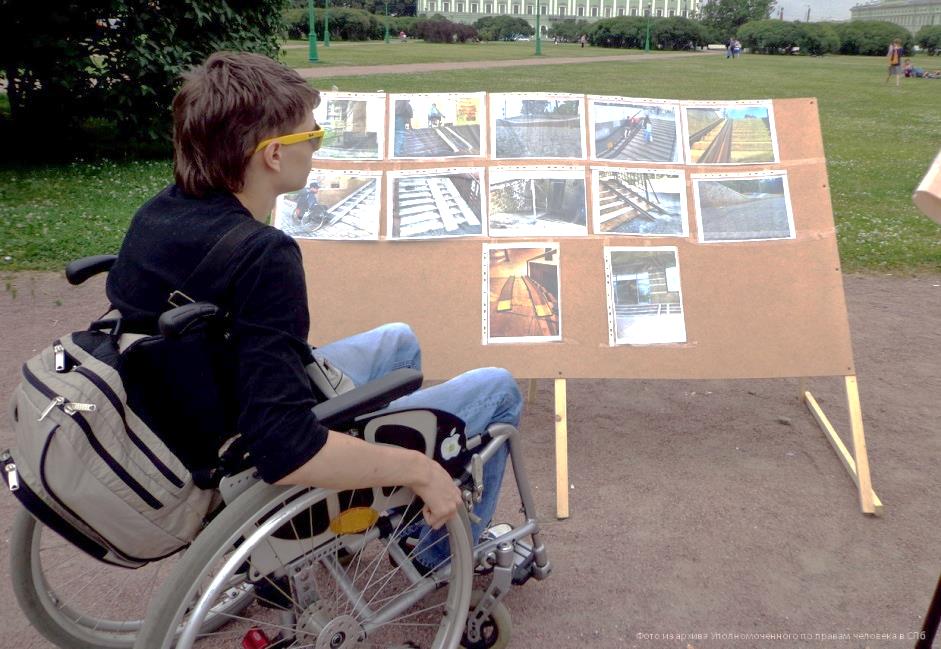
The Ombudsman repeatedly noted that the city policy in this field should take into account interests of persons with disabilities. At the meeting of the Saint Petersburg Government concerning adoption of the Program "Building accessible environment for persons with disabilities in Saint Petersburg" for 2013-2015 the Ombudsman proposed to hold annual public discussions and assessment of effectiveness of this Program with participation of NGOs protecting persons with disabilities. The Governor of Saint Petersburg Georgy Poltavchenko indorsed that proposal of the Ombudsman. Such public discussion of the Program is planned for the first half of 2014.
In 2013 a group of activists which included persons with disabilities inspected 32 out of 42 pharmacies that provided with medicines persons entitled to benefits (“social pharmacies”). Those inspections revealed that only one of the pharmacies was equipped in a manner to be accessible for persons with disabilities.
The Ombudsman proposed to make the requirement of accessibility for persons with disabilities one of the criteria for competitive selection of "social pharmacies". That proposal was endorsed by the administration of Saint Petersburg.
10. Problems of xenophobia
The Ombudsman is deeply concerned by the spread of xenophobia in the society, now resulting in violent crimes.
In July 2013 extremists initiated so-called "Russian clean-ups" in various districts of Saint Petersburg. According to multiple evidence including video illegal actions targeted persons from national minorities and were clearly of a hostile and xenophobic nature.
On 4 November 2013 ultra-nationalists organized a violent action at Udelnaya metro station and made a disturbance at a local market.
On 23 November 2013 in Engels Prospekt extremists tried to attack people of Central Asian descent. However, their action was timely stopped by the police.
The Ombudsman believes that it is crucial that the police strictly prevent and stop any violent expressions of xenophobia and that those responsible for this violence be brought to justice. At that, a correct legal characterisation of such actions is very important. It should take into account motivation of hostility and hatred as aggravating circumstances (often their actions are characterised as hooliganism).
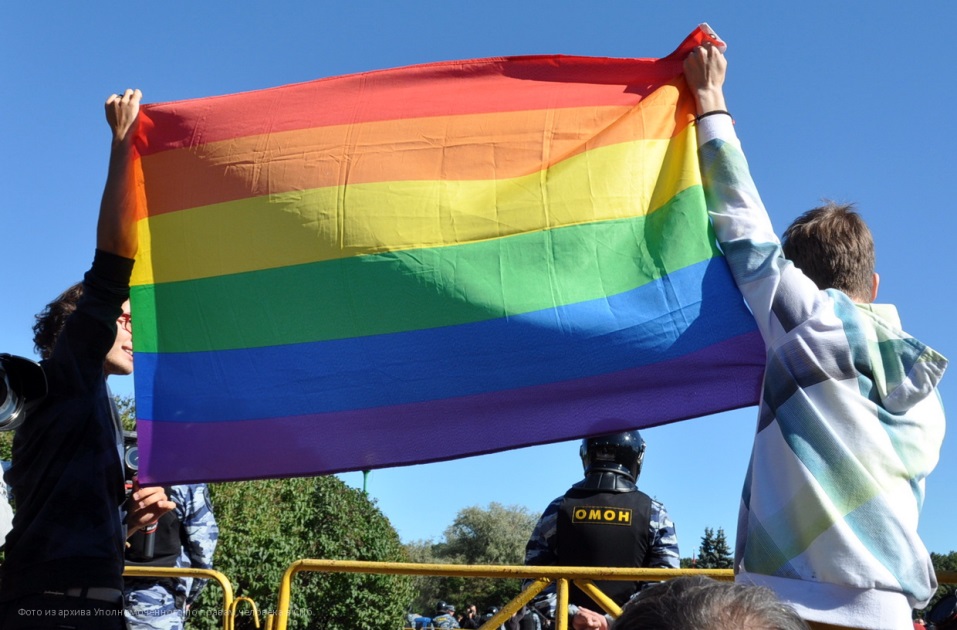
In 2013 multiple incidents of organised actions aimed to disturb legal public events organised by LGBT community took place in St. Petersburg. In several occasions clashes between sexual minorities and their opponents had serious consequences.
For example, on 3 November 2013 an attack resulted in a back injury of a woman, and a man got an irreversible eye injury after a shot by a non-lethal weapon. On the current date this crime is characterized by investigators as hooliganism.
11. Rights of foreign nationals
The Ombudsman is deeply concerned by violations of the rights of foreign nationals, first of all, of migrant workers.
State authorities demonstrated their commitment to a meaningful and consistent solution of migration issues by putting in place such State Programs as "Tolerance" and "Migration". Moreover, from 1 January 2014 started to work a Committee on inter-national and inter-confessional relations of Saint Petersburg. However, xenophobic statements and calls for strengthening repressive measures in the area of migration are often heard in the city. Yet, in 2013 less than 4% of foreign nationals were held responsible for violations of migration legislation.
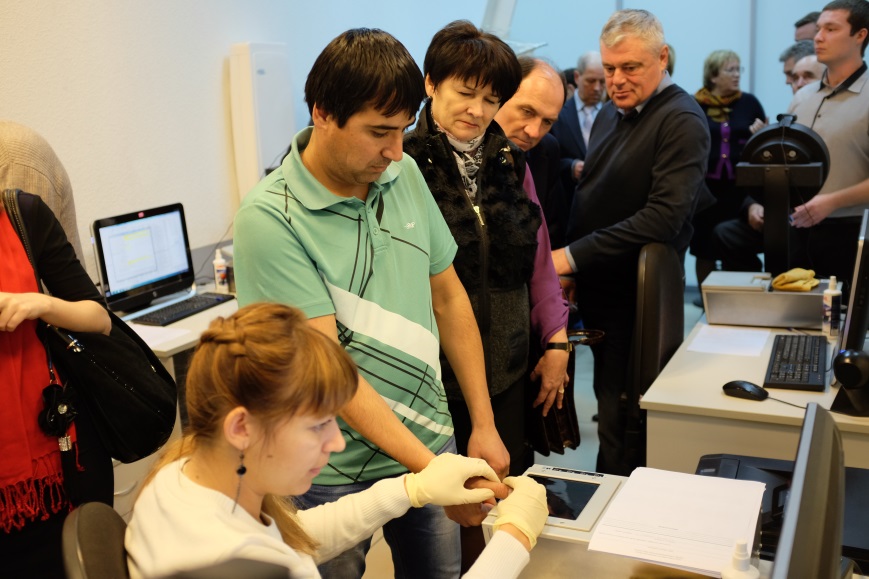
In 2013 a lot was said about an increase in the number of crimes committed by foreign nationals. According to the Prosecutor's Office of Saint Petersburg, the increase was mainly due to an increase in crimes provided by Article 327 §§ 1 and 3 of the Criminal Code of the Russian Federation (forgery of documents): 614 cases in 2013 which is 22% of the total amount of crimes. Among serious crimes there was an increase in the number of crimes provided by Article 105 of the Criminal Code of the Russian Federation (murder): in 2013 there were 47 registered murders, and this number is higher than that of 2012.
It should be noted that crime rate among foreign nationals residing in Saint Petersburg is lower than that among permanent residents of the city.
According to the most conservative estimation of experts, not less than 500 000 foreign nationals stay in Saint Petersburg at any one time. If this number is reliable, in 2013 the number of registered crimes per 100 000 persons was 564 among foreign nationals and 1025 among other residents of the city. Therefore, statements about high crime rate among migrants are quite erroneous.
A public opinion poll carried out in March 2014 by the Megapolis Center proves alarming changes in attitude of the city residents towards migrants. Five years ago in reply to the question "How do migrants disturb you, what problems do they cause?" residents of Saint Petersburg said "They act as if they are at home, they do not want to respect our laws and traditions"; a few years ago they said "They occupy our work places", and from 2013 the top answer is "They are too many".
Employers and gangmasters hiring migrants are widely responsible for violations of the rights of foreign nationals coming to Saint Petersburg and looking for a job, and for problems which Saint Petersburg residents experience in this regard. They are those who attract foreigners to the city and offer them jobs, gaining a surplus profit due to saving at the expense of workers, in fact deprived of their rights.
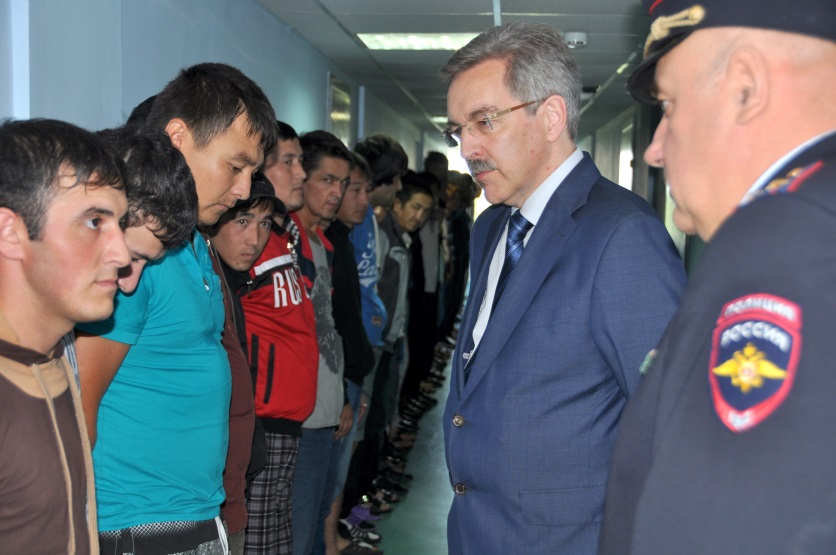
The Ombudsman believes that the stance of the authorities in respect of employers hiring foreign workers and violating their rights should be more active and more targeted. In the Ombudsman's opinion, this would help to hold back the wide use of cheap work force of foreigners and consequently to lower the rise of migration. The Ombudsman is persuaded that the solution of labour migration issues in the interests of Saint Petersburg residents requires taking into account both economic and social and cultural factors, as well as defining acceptable share of external migrant workers in Saint Petersburg labour market.
12. Right to freedom of assembly
Protection of fundamental civil and political rights is a special area of the Ombudsman’s work.
The amendments in the federal and Saint Petersburg legislation related to this issue influenced significantly the exercise of the right to freedom of assembly in 2013.
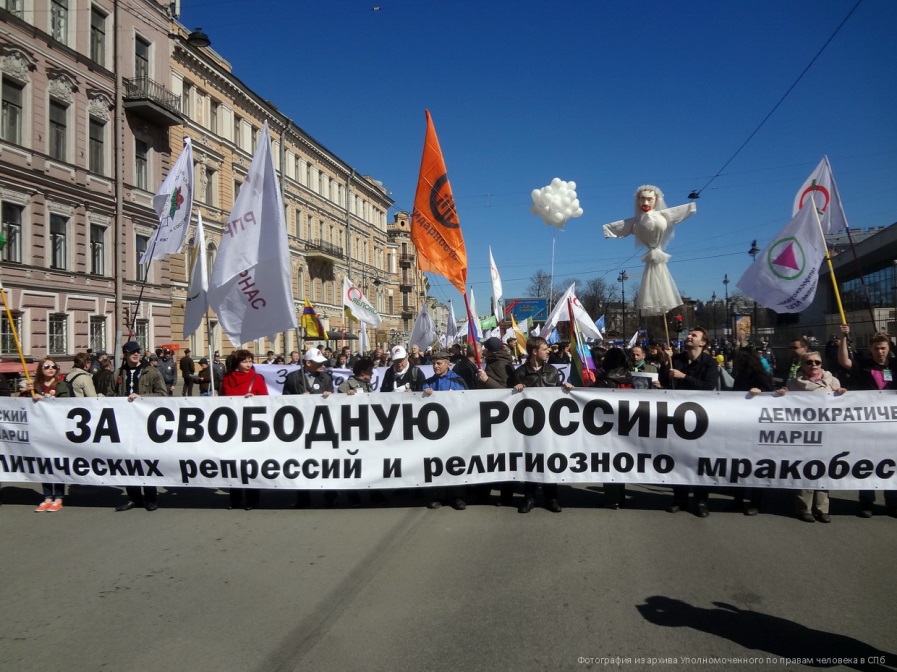
The Ombudsman is concerned by the Saint Petersburg practice of the application of Article 8 § 1_1 of the Federal Law of 19 June 2004 "On assemblies, meetings, demonstrations, marches and picketing" which defines the notion, procedure and use of "single designated locations for collective discussion of issues of public interest and for expression of public attitudes as well as for mass presence of citizens for public expression of opinion about urgent issues mainly of social and political nature", or so-called Hyde parks.
By its Resolution of 24 December 2012 "On single designated location for collective discussion of issues of public interest and for expression of public attitudes as well as for mass presence of citizens for public expression of opinion about urgent issues mainly of social and political nature in Saint Petersburg" the Government of Saint Petersburg designated the only such place in the Field of Mars.
In its judgment of 14 February 2013 no. 4-P the Constitutional Court of the Russian Federation clarified that in defining designated locations and rules of their use the achievement of the goals of the public event and transport availability should be taken into account. The Constitutional Court stated, in particular, that prior to the introduction of relevant amendments into regulations concerning designated locations for holding public events the regional executive authorities should take into account the necessity to have such places at least in each urban district and municipal district.
On 6 June 2013 the Ombudsman held a workshop on application of Saint Petersburg Law of 8 June 2011 "On assemblies, meetings, demonstrations, marches and picketing in Saint Petersburg" in the light of the amendments adopted in March 2013. The workshop brought together representatives of the regional offices of political parties and associations and members of the Committee for Justice, Legal Order and Security in Saint Petersburg. The main subjects for discussion were agreement of time and place for holding public events in Saint Petersburg and practical use of the so-called Hyde Park in the Field of Mars. The majority of participants upheld the initiative to publish notifications about planned public events and the use of the designated location, received by the Committee for Justice, Legal Order and Security in Saint Petersburg, on the web-site of the Saint Petersburg administration (similarly to the procedure established in Moscow).
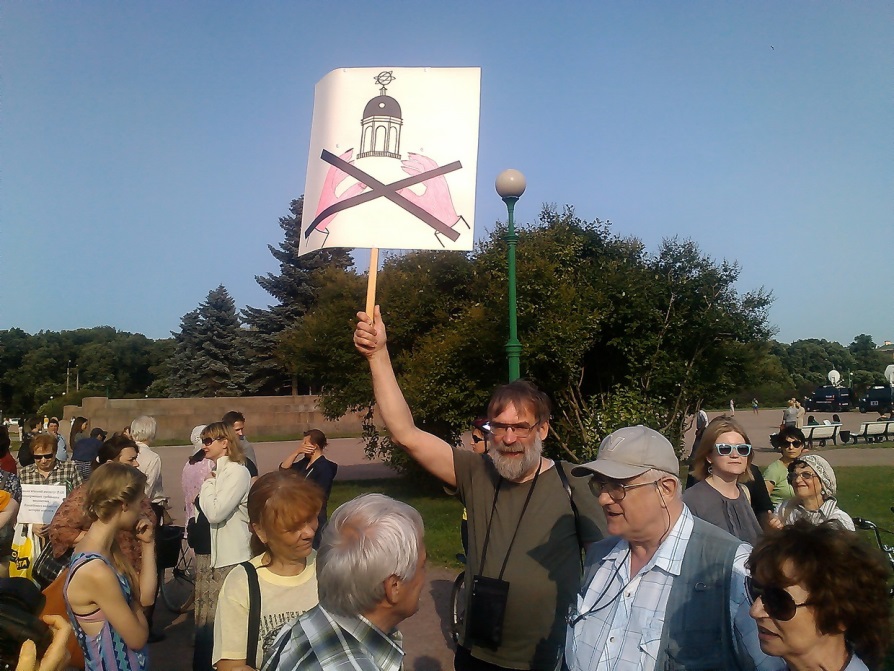
Following the workshop and the judgment of the Constitutional Court of 14 February 2013 the Ombudsman proposed to the Governor of Saint Petersburg to consider possible selection of additional designated locations for holding public events. The Governor ordered to prepare a relevant draft resolution.
The impossibility to hold public events near buildings occupied by state authorities, educational institutions and health care facilities is a serious obstacle for the free exercise of the right to freedom of assembly. Territories adjacent to them are limited by circles with 50 meters radius from their entrance.
As the Constitutional Court stated in its judgment of 14 February 2013, while giving approval for a public event, the authorities should offer the organizers such a location that will allow them to bring their demands to notice of relevant persons.
The Chairman of the regional office of the NGO "Russian Union of Students" informed the Ombudsman about the refusal of the Committee for Justice, Legal Order and Security in Saint Petersburg to agree holding a meeting on 5 December 2013 at Academician Sakharov Square. The aim of the meeting was public discussion of re-organization of faculties at Saint Petersburg State University. This aim of the meeting determined the selection of the place for its holding – in close vicinity of the University. However, Academician Sakharov Square being not large enough and several entrances of University buildings being adjacent to it, no legal place for the meeting was found.
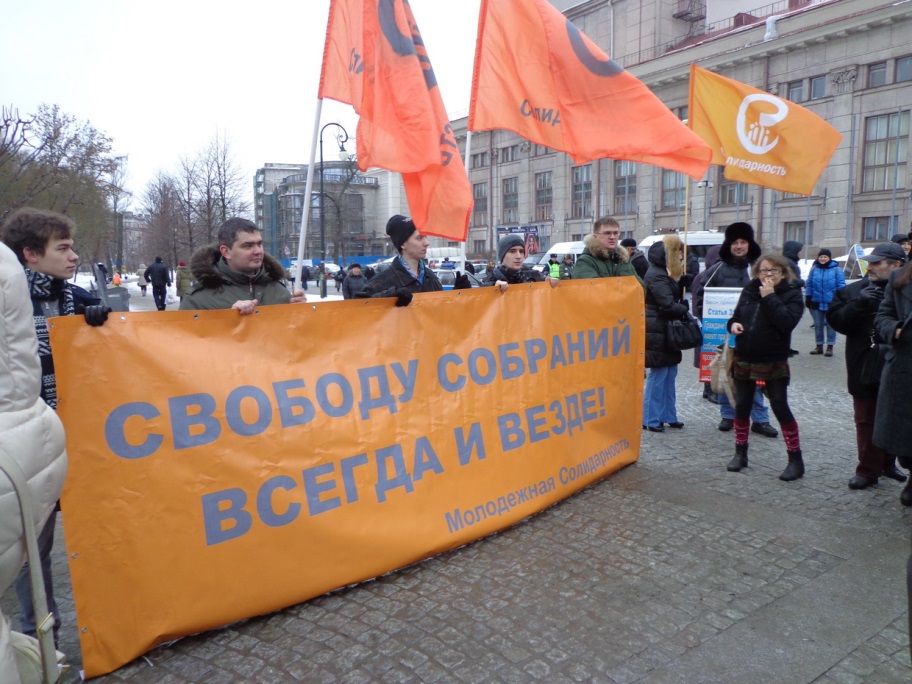
Prior to the final adoption of amendments to Saint Petersburg Law "On assemblies, meetings, demonstrations, marches and picketing in Saint Petersburg" the Ombudsman submitted his recommendations concerning its amendment to the Legislative Assembly of Saint Petersburg. The Ombudsman's proposal included shortening of the list of places that are prohibited for holding public events, excluding from it the Saint Isaac's Square and the territories adjacent to the entrances of buildings occupied by the state authorities of Saint Petersburg, as well as reduction of the size of the territories adjacent to the entrances of educational institutions and health care facilities which are prohibited as places for holding meetings, marches and demonstrations. These proposals are still relevant this year.
13. Right to freedom of association and freedom of expression
One of the key aspects of the Ombudsman's work is cooperation with non-governmental organisations.
There are over 10 000 NGOs in Saint Petersburg. Many of them perform a very important work for the society, successfully carrying out tasks which sometimes cannot be completed by the State. Since it is hard to reach many NGOs’ goals without support of the State, NGOs are usually ready for communication with state authorities and are interested in meaningful cooperation with them. In this regard the Ombudsman shall facilitate establishment of cooperation between associations and state authorities and institutions officials in accordance with law. The Ombudsman collaborates with NGOs on many issues within his competence. This helps both parties to receive necessary information and to solve existing problems.
Unscheduled inspections of NGOs' activities by the Prosecutor's Office were a serious challenge for NGOs in 2013. 8 NGOs contacted the Ombudsman believing that in March and April 2013 the Prosecutor's Office performed inspections in violation of legislation in force. In reply to the Ombudsman’s request the Prosecutor's Office of Saint Petersburg stated that 75 organizations were subject to inspections, i.e. less than 1% of NGOs registered in the city. During those inspections the Prosecutor's Office found 149 violations in activities of NGOs. It issued 80 acts of prosecutorial reaction, including 22 prosecutorial decisions on elimination of identified violations and 47 cases of administrative offences. The Office of Prosecutor brought two actions before courts aiming at the dissolution of organisations and one action aiming at obliging an organisation to register as a non-governmental organisation carrying out functions of a "foreign agent".
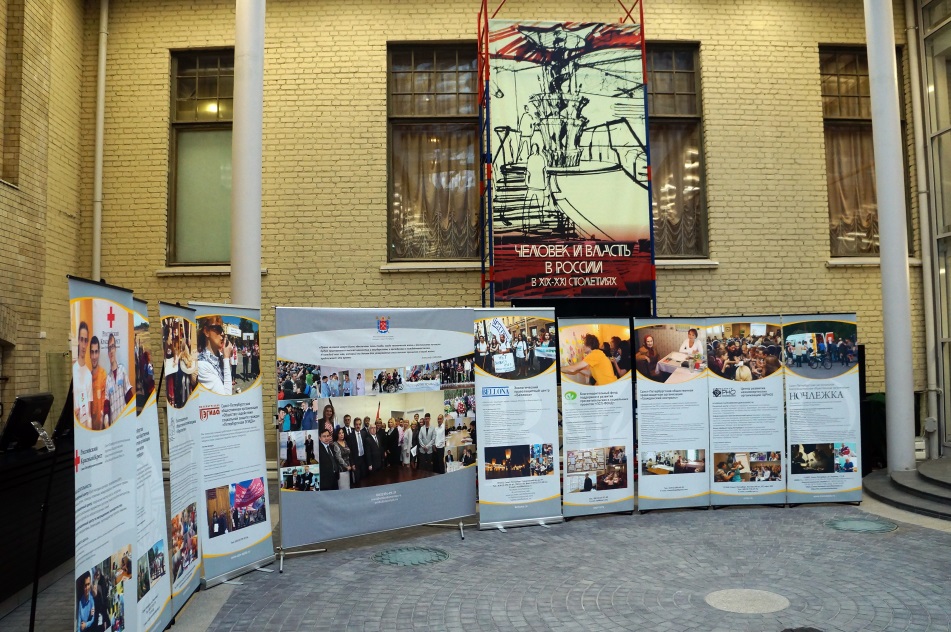
However, reasons for those unscheduled inspections of NGOs were not clear. Therefore, NGOs, journalists and many citizens supposed that the inspections were in fact a campaign for searching organisations that allegedly acted as "foreign agents". During the inspections Prosecutors requested from NGOs around 20-26 documents related to their activities (organisational and legal documents, financial documents, documents issued by other monitoring authorities). Those documents were to be submitted within 2-3 days and some of them were requested to be notarized. During the inspections officials of the Prosecutor's Office were accompanied by officials of the Ministry of Internal Affairs of Russia, the Ministry of Emergency Response, the Federal Tax Service of Russia and the Federal Service for Supervision over Customer Rights Protection and Human Well-Being of Russia. In several cases those officials did not show their badges. The reasons for presence of the officials from other state authorities at the Prosecutor's inspections were not clear. It should be noted that paragraph 2 of the instruction of the Prosecutor General's Office of Russia of 8 March 2011 "On the exclusion from the practice of the Prosecutor’s supervision of facts of unsubstantiated interference into activities of state and local authorities and other bodies and organizations" does not allow Prosecutors conducting inspections if there are no reasons for them, performing or duplicating functions of other authorities, making requests to unauthorized bodies and organizations, making groundless requests to state and local authorities and other bodies and organizations for documents, materials and data, including those clearly irrelevant to the subject matter of inspections, requesting unnecessary information, freely accessible information or illegal forms of statistical accountability as well as information protected by law.
The adoption of the Federal Law of 20 July 2012 no. 121-FZ "On introducing amendments to certain legislative acts of the Russian Federation regulating activities of non-governmental organisations carrying out functions of a foreign agent" triggered a strong reaction in the society. Many lawyers pointed out the ambiguity of the notions used in the law, such as "political activity", "influence on public opinion" or "influence on decision-making process of state authorities". According to the autonomous non-governmental organisation "Human Rights Resource Center", the risk of being brought to administrative and even criminal liability for refusal of an organisation to recognize itself as a “foreign agent” compelled many organisations to change strategy of their development. As many as seven Saint Petersburg NGOs took decision to stop their activities, since registration in the register of organisations carrying out functions of a “foreign agent” entails additional expenses for audit, special forms of organisational accountability, supervision and monitoring by the Ministry of Justice and the Prosecutor's Office. Moreover, the term "foreign agent" itself is strongly associated with the word "spy" among native Russian speakers.
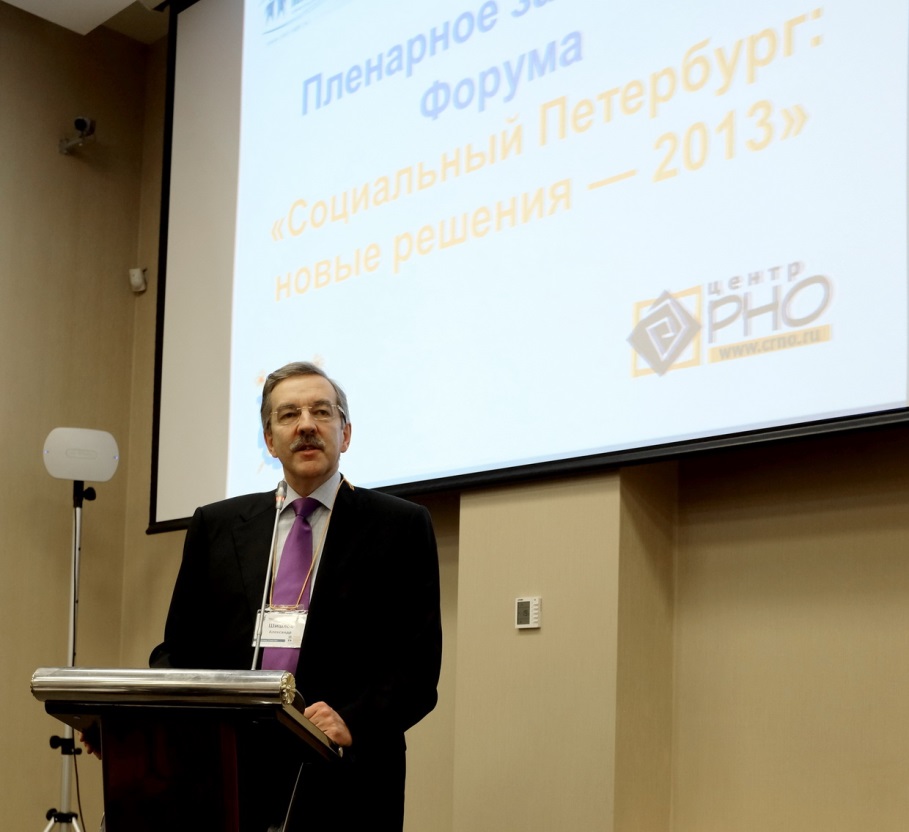
In his opinion about the legislation of the Russian Federation on non- commercial organisations in light of Council of Europe standards of 15 July 2013 the Commissioner for Human Rights of the Council of Europe stated that the notion of “political activity” as defined in the Law on Foreign Agents, the use of the term “foreign agent” and the possibility of applying criminal charges for “malevolent” non-compliance with the Law interfere with the free exercise of the rights to freedom of association and freedom of expression. Shortcomings of the Law on Foreign Agents were also recognized by the Prosecutor General of Russia in his address to the Federation Council on 11 July 2013. The Prosecutor General pointed out that it lacks a clear definition of "political activity".
The Ombudsman transmitted summarized data on the inspections carried out in Saint Petersburg in respect of NGOs to the Human Rights Ombudsman of the Russian Federation. This information was included into a complaint of the Human Rights Ombudsman of the Russian Federation about violation of constitutional rights of citizens lodged with the Constitutional Court of the Russian Federation.[1]
14. Right to free elections
The elections to municipal councils were to be held in September 2013 in three municipal entities of Saint Petersburg - municipal district no. 15, Grazhdanka entity and Vasilyevsky entity. However, in July 2013 the municipal councils of those municipal entities illegally extended their powers for a year. The residents of those municipal entities took legal actions before the Saint Petersburg City Court. However, a judicial decision in respect of Grazhdanka entity was not delivered until 9 February 2014. The acting council of that municipal entity was obliged to schedule elections for the common day of elections in Russia, on 14 September 2014. Judicial proceedings with respect to municipal district no. 15 and Vasilyevsky entity were still pending in February 2014.
The election committee of Saint Petersburg obliged by the Federal Law "On fundamental guarantees of electoral rights" to monitor respect of citizens' rights to vote, avoided legal assessment of that situation unprecedented for Saint Petersburg, where three municipal entities did not schedule elections. Therefore, there has been a serious violation of electoral rights of citizens.
Given that in 2014 elections are to be held in 106 municipal districts, protection of electoral rights of citizens will be one of the priorities for the Ombudsman.
[1] On 6 March 2014 the Constitutional Court examined the case on review of constitutionality of certain legislative provisions on associations and non-governmental organisations as well as of the Code of Administrative Offences of the Russian Federation.

